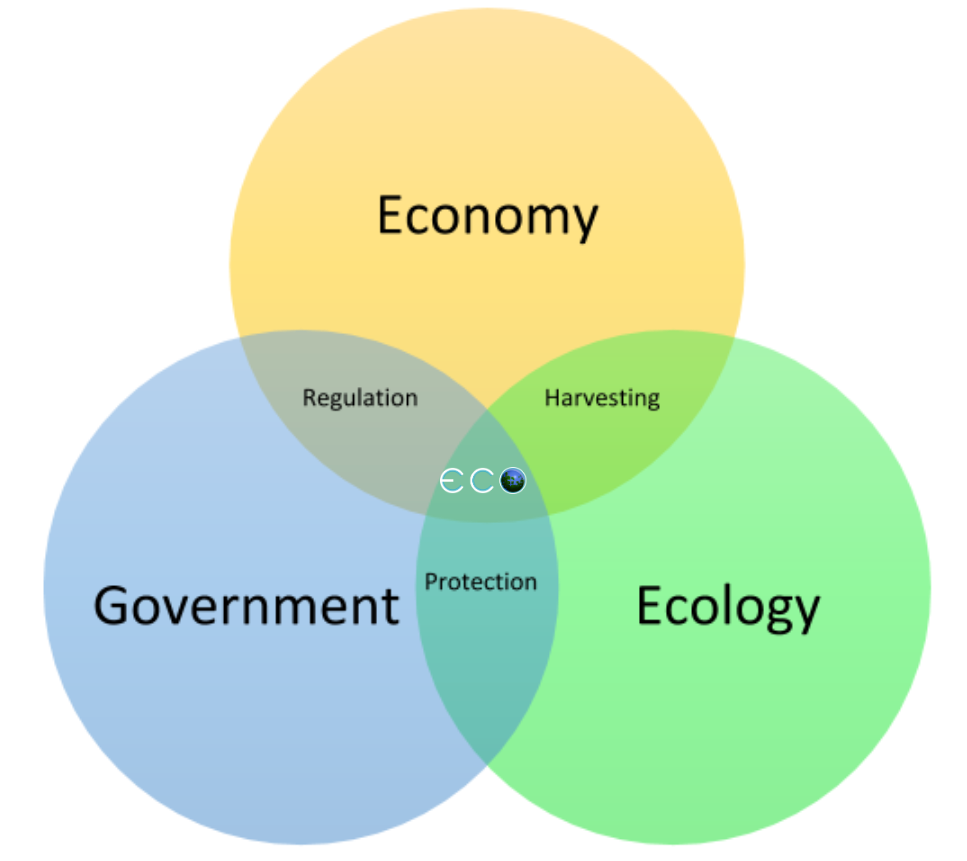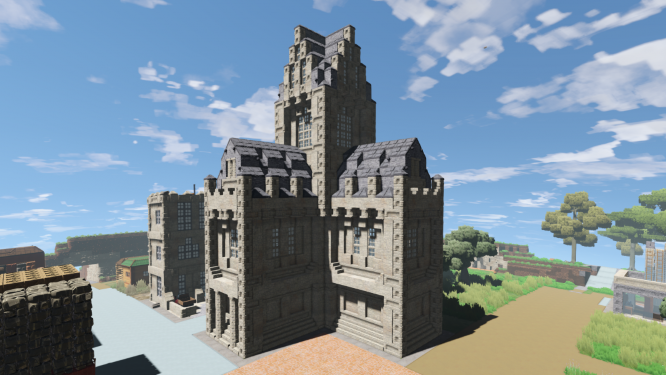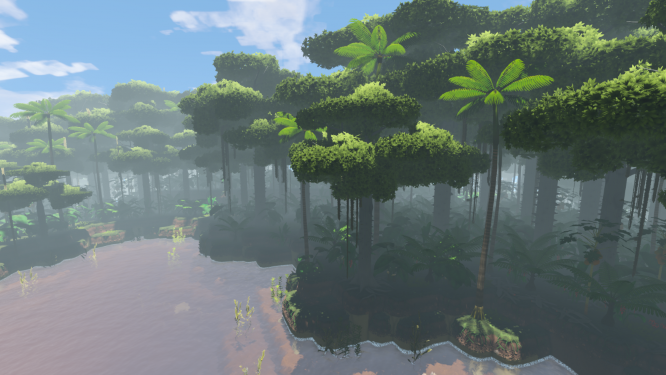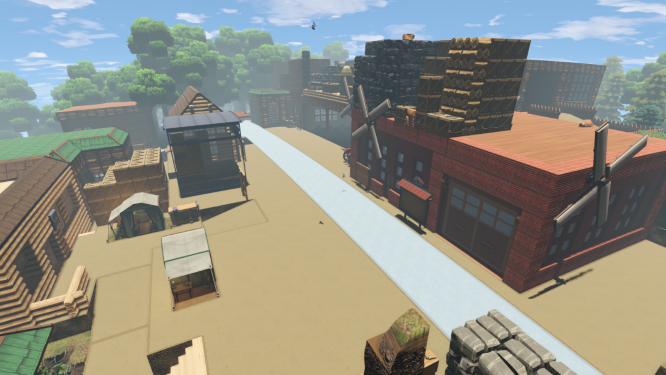almost 6 years
ago -
WAVES
-
Direct link

This week I’d like to dive into the core of Eco’s design a bit, and talk about the principles that guide the design and development of the game. These are things that go way back to the beginning ideas of what Eco would be, and are used to this day to determine what we choose to bring next in the game.
Game Mission
Eco’s design mission is to have players “Solve the Tragedy of the Commons,[en.wikipedia.org]” taking place among real people. That means creating conflicts among people with the same end goals, where a collection of self-interests is not enough to succeed, you need some representation of collective interest.
To implement that, the game exists within the intersection of the game's design pillars: Economy, Ecology and Government.
The role of these pillars in the game is as follows:
Economy Encompasses the efforts and progress of humans. Manufacturing, creating infrastructure, building, harvesting, performing research, specialization, trade. Collaboration and competition is a big goal of this pillar, to connect players together in productive (as well as adversarial) creation. The features of the economy should be grown to support these features, as well as influences from the other two pillars. Key goals of this pillar are:
- Asynchronicity, allowing players to collaborate across time and space,
- Discoverability, making it easy for players to find the information they need about how to participate in the economy.
- Involvement, incentivizing players to work together, especially between different levels of experience.
- Organization, allowing players to organize labor seamlessly through the interests of many parties, with lots of data on progress and economy state.

Ecology The substrate of the player experience, this is the ‘reality’ that they are forced to contend with. It is both the source of their solutions and problems. Our emphasis when building the Ecology simulation is a feature-set that both affects and is affected by human actions. That is, resources that are useful to the economy, and systems that are vulnerable to pollution and over-harvesting.
Beyond that, the ecology is a goal in itself, and the beauty of the ecosystem has natural value in the game outside of any human purpose.
Key goals of this pillar are:
- Visibility, players should be granted powerful tools (the stats system) to understand how the ecology system works and how players are influencing it.
- Impact, simulated features are highly reactive to the actions of players.
- Diversity, promoting the usage or more far-spread regions of the world, increasing needs for transport and collaboration, and allowing for myriad complex effects from different biomes.
- Existential Threat, the ecology needs to be capable of dying and creating a losing world for players due to their actions.

Government Government in Eco serves as a tool to manage and dictate the relationship between players in the economy, and between the economy and the environment. It needs to be powerful and flexible enough to express a rich variety of governmental structures, and still easy and fun to understand and build (I see these two goals as supportive of each other rather than opposites). Government must be necessary to win the game, allowing players to dictate the interactions that happen with the environment.
Key goals of this pillar are:
- Ease of use. All players should be capable of understanding and using the system.
- Power. Many different and deep structures of government should be possible with the system.
- Created by Players. Government should be both run and constructed by players, allowing them to form it as a solution to their problems in the economy and in interactions with the ecosystem.
- Meta-Game Support. Promotes the positive interaction of players in the meta game (active players coming and going, property arrangements, etc). Serves to handle problems that occur not just in the game but in the meta-game.
- Transparent. The workings of government should be available and in fact highlighted for all players to see and participate in.
- Iterative. The government should be expected to change throughout gameplay, not simply be created once and run forever that way.

Community The second mission of Eco is to build meaningful community, and some features may apply to this even if they don’t directly promote the ‘Tragedy of the Commons’ goal. Examples of such features include:
- Meta-features for finding, hosting, and joining servers.
- Organization of server works among players
- Avatar creation and customization of appearance, custom animations for interactions
- Decorations and cosmetic buildings and clothes.
As we start to roll out our performance update for 8.2, we’re tasking out more features for 9.0, and we’ll be using this guide to flesh out the features and content we want to target. We’ll be putting it into a nice ‘Eco Tree’ that shows those parts visually and conceptually as they grow. The community’s feedback will factor in a lot to these decisions, so do share your feedback on our Discord,[discord.gg] in our Suggestions Github Database,[github.com] and via email [email protected]
Cheers and thanks for your support, looking forward to sharing all the new stuff we’ll be building.
- Team Eco